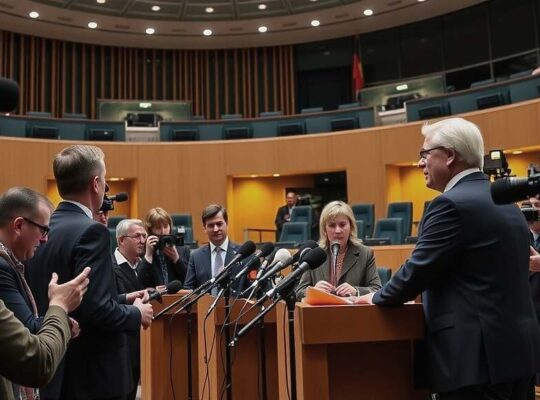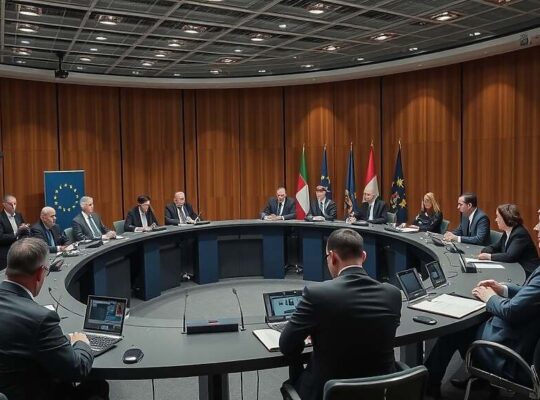The European Commission has revised upwards its economic growth forecasts for the Eurozone and the wider EU, signaling a degree of resilience despite persistent global headwinds. The latest Autumn Forecast projects a 1.3% expansion for the Eurozone in 2025, followed by 1.2% in 2026 and 1.4% in 2027. This represents a significant upgrade from the 0.9% growth anticipated in the Spring, though questions remain about the sustainability of this trajectory.
For the EU as a whole, the Commission anticipates 1.4% growth in both 2025 and 2026, accelerating to 1.5% in 2027. Inflation within the Eurozone is predicted to continue its decline, reaching 2.1% in 2025 and stabilizing around the 2% mark throughout the forecast period. Inflation is expected to remain marginally higher across the broader EU, receding to 2.2% by 2027.
European Commissioner for Economic Affairs, Valdis Dombrovskis, lauded the relative stability observed despite a challenging external environment. However, his statement simultaneously highlighted the necessity for decisive action to bolster domestic growth. He emphasized accelerating efforts on the competitiveness agenda, advocating for regulatory simplification, the conclusive completion of the single market and a concerted push for innovation.
Critics immediately questioned the Commission’s assessment, pointing to underlying structural weaknesses and the potential for external shocks to derail the projected growth. Concerns linger regarding the impact of high interest rates, persistent supply chain disruptions and the ongoing geopolitical volatility stemming from the war in Ukraine. Simplification of regulations and completion of the single market, while essential, have faced significant political and lobbying hurdles in the past, raising doubts about the feasibility of achieving the desired acceleration.
Furthermore, while embracing innovation is commendable, the forecasts largely fail to address the critical need for investment in social infrastructure and workforce development – vital components for ensuring inclusive and long-term economic prosperity across the EU. The reliance on external factors and a focus on competitiveness risks overlooking deeper societal challenges and potentially exacerbating existing inequalities within the bloc. The robustness of these projections and the effectiveness of the proposed measures remain subject to scrutiny as the EU navigates a complex and uncertain global landscape.












